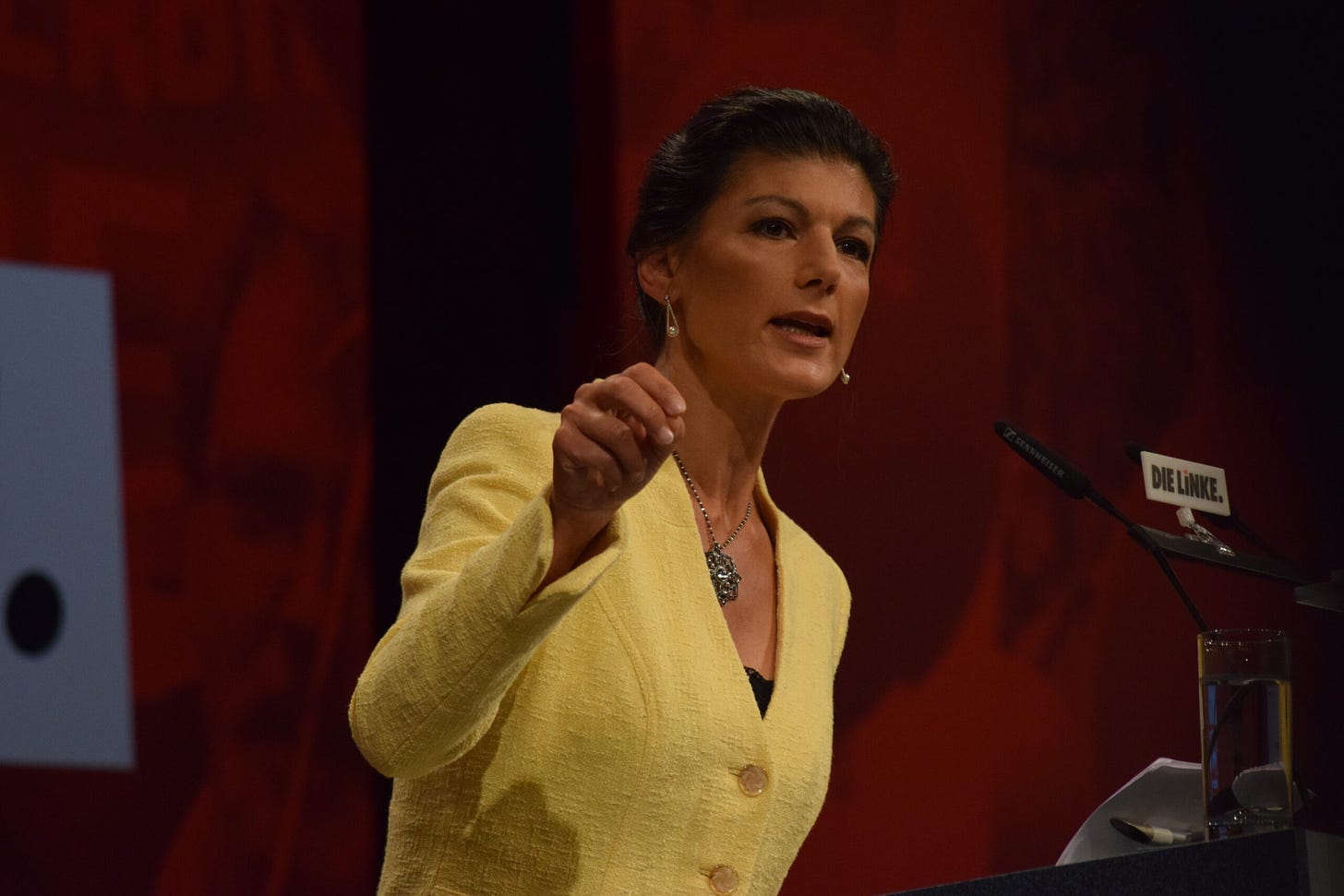AfD Continues To Grow in Germany
Far-Right Clinches Significant Victories in State Elections
The far-right in Europe is experiencing some of its best (election) days in recent years. Elections in the German federal states of Thuringia and Saxony saw the Alternative for Germany (AfD) win a significant portion of the vote: the party secured 33% of the vote in Thuringia and 31% in Saxony.
In Thuringia, the Christian Democratic Union (CDU) came in second to the AfD, while in Saxony, it managed to secure the top spot by a 1% margin. Meanwhile, the newly formed Sahra Wagenknecht Alliance for Reason and Justice (BSW) secured 16% of the vote in Thuringia and 12% in Saxony, positioning itself as an important factor in the upcoming government formation.
The results reflected far worse on The Left (Die Linke), which saw its support plummet compared to past elections, while the parties forming the current federal government: the Social Democratic Party (SPD), the Greens, and the liberal Free Democratic Party, were all but decimated.
The election outcome has been met with concern and indignation, although it is far from unexpected. The AfD’s popularity has been growing, even in former left strongholds in eastern Germany, as mainstream parties have failed to address people’s concerns about employment and quality of life. This has allowed the AfD to present itself as the sole alternative to the mainstream, shifting the blame for growing economic inequality and hardship onto immigrants and asylum seekers.
Forming a new government in Thuringia and Saxony will be a complicated task. Other parties have ruled out the possibility of forming a coalition with the AfD, stating instead that they would implement a “firewall” strategy to keep the far-right out of power. However, this would require forced collaboration between parties with completely different ideologies, likely leading to significant obstacles in everyday governance and potentially driving even more voters toward the AfD in future elections.
These elections are certain to have broader implications as well. The poor performance of the SPD, the Greens, and the liberals has added to existing concerns about their prospects in the 2025 federal elections. While Chancellor Olaf Scholz acknowledged the situation as grim, he stopped short of admitting that it is the result of his administration’s failure to address people’s concerns. Instead, he focused on criticizing the AfD, accusing the party of “damaging Germany” and “ruining our country’s reputation.”
On the other hand, during their campaign, the BSW addressed topics avoided by mainstream political parties, including the economic impact of the war in Ukraine on the people of Germany. Formerly a prominent member of The Left, Wagenknecht formed her own party in early 2024 and is campaigning on a platform that is decisively anti-war, after facing backlash for her anti-NATO and anti-armament stances within The Left. This message seems to have resonated with a significant portion of the electorate. “Half of the people in Germany are afraid of the country being pulled into a major war, and in the east, such people are the majority,” Wagenknecht recently stated.
However, the BSW’s stance on immigration has leaned toward the conservative side, casting doubts among progressives. This is particularly relevant as immigration policy has come to dominate public discussion, with mainstream parties adopting increasingly hardened views on immigration to match the AfD’s influence.
As Germany prepares for next year’s federal elections, the results in Thuringia and Saxony serve as a stark reminder, especially to parties on the left, of the need to formulate concrete and implementable measures to move away from neoliberal policies and warmongering, and finally counter the AfD’s rise. Whether they can do so in time for the elections remains to be seen.





